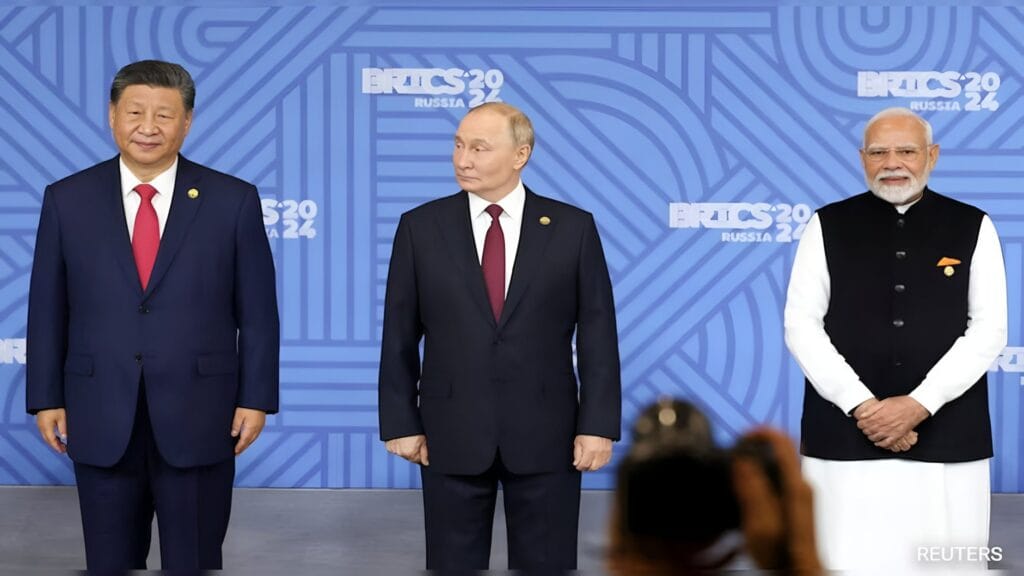Last week, Russian President Vladimir Putin seized the BRICS summit to reiterate that Western attempts to isolate Russia over Ukraine had failed. Instead, he’s focused on how Russia is strengthening ties with rising powers in Asia. The event has sparked conversations about whether the true potential of BRICS could ever become a global force in the economy, especially when considering the internal divisions between the major players of China and India.

BRICS, the term coined by former Goldman Sachs economist Jim O’Neill in 2001 to call attention to the potential size of Brazil, Russia, India, and China’s combined growth opportunity, has since grown to include South Africa, and most recently, countries such as Egypt, Ethiopia, and Iran. But for all the hype surrounding BRICS, O’Neill, also dubbed “Mr. BRICS” for his role in creating the concept, believes the group has fallen far short of its potential.
O’Neill made his opinions on this matter well known in an interview with Reuters. According to his words, even as long as China and India are unable to agree on key trade issues and continue to compete with them instead of cooperating, BRICS will be unable to make a serious challenge to the dominance of the US dollar and other Western-led financial systems. “The idea of BRICS being a serious global economic club is, quite frankly, unrealistic at this point,” O’Neill said. “It’s much more symbolic in terms of getting countries together so they can get a sense of solidarity about not being under US influence than trying to achieve some meaningful global governance.”.
READ MORE | PM Modi and Xi Jinping to Meet at BRICS Summit Today, in Five Years
With the group now representing 45% of the world’s population and 35% of its economy (with China responsible for most of that economic weight), they seem to be a strong bloc on paper. Yet, as O’Neill pointed out, the BRICS nations have not done much over the past 15 years.
In addition, he believes that only global problems, such as pandemics or climate change, would not be solved without the cooperation of the US and Europe or, vice versa, without China, India, and other BRICS being included in the efforts of the West to solve these global problems. According to him, the G20 and the BRICS countries lack implementation concerning world challenges, mainly because they operate without unity and cooperation among the players.
According to Putin’s opening remarks at the summit, over 30 countries expressed interest in joining BRICS. However, even O’Neill feels that adding more members could make it less easy to get anything done. I tend to agree here. Expanding the group may sound good on paper, but if they can’t even agree internally on basic trade practices, what hope is there for progress?
Another point raised during the summit was that BRICS could use it to develop an alternative international payments system, a way around Western sanctions. But O’Neill cooled off that idea, too. While people have been talking about alternatives to the dollar for decades, nothing has ever materialized, he said. “Any BRICS currency would be largely reliant on China, and countries like Brazil and Russia wouldn’t play a significant role,” O’Neill explained. Without serious effort from all members, this idea too seems like wishful thinking.
Argues O’Neill, for BRICS to ever be taken seriously on economic matters, China and India must genuinely work together. I believe he’s correct. These are gargantuan economies that have a significant say in the planet, but their constant bickering – such as border clashes in 2020 – doesn’t exactly help with further cooperation. And let’s be honest; if these two can’t get their act together, what hope is there for the rest of the lot?
Interestingly, claims Chinese President Xi Jinping, with the world in a mess, the strategic partnership of China and Russia remains a bulwark of stability. Well, that is a pretty weighty statement- especially when seen in the light of spiking tensions between China and the West. But is this partnership enough for BRICS to be a serious player on the global scene? O’Neill doesn’t agree with it and neither do I. Even though there was a good relationship between China and Russia, however, the group still didn’t have clear-cut objectives to deal with the major world problems. O’Neill even hinted that BRICS should focus on some concrete goals, developing vaccines for global diseases or combating climate change.
In my opinion, BRICS may one day emerge as a strong world force; however, it is not yet. Internal division, lack of a common goal, and over-reliance on some members make it more of a symbolic organization rather than an operative one. Until China and India do somehow find common ground and the group focuses on working with key issues facing the world, BRICS will remain little more than a symbol rather than a serious economic alternative to the West.
Minutes by M31GlobalNews






